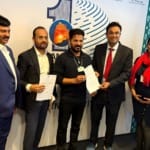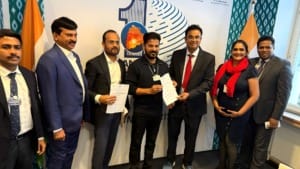Global Anti-Scam Summit Asia 2025 launches major initiatives to fight online fraud
Global Anti-Scam Summit Asia 2025 in Singapore unveils new initiatives to fight scams with technology, funding, and cross-border collaboration.

The Global Anti-Scam Summit (GASS) Asia 2025 opened in Singapore on 2 September with a call for stronger collaboration to tackle the region’s escalating scam problem. The event, attended by government officials, technology leaders, and non-profit organisations, unveiled new initiatives aimed at strengthening defences against online fraud, which cost Southeast Asia an estimated US$23.6 billion over the past year.
Table Of Content
Singapore joins global scam signal exchange
One of the most significant announcements came from GovTech Singapore, which became the first government agency in the world to commit to sharing scam signals through the Global Signal Exchange (GSE). The platform, co-founded by Oxford Information Labs Research, Google, and the Global Anti-Scam Alliance (GASA), tracks over 400 million threats in real time. By enabling members to share threat information quickly, it serves as the first global clearinghouse for scams and fraud. Current members include Meta, Microsoft, and other major technology players.
Mr Tan Kiat How, Senior Minister of State for the Ministry of Digital Development and Information and Ministry of Health, and Patron of the GASA Singapore Chapter, said that while artificial intelligence had created powerful new opportunities, it also gave scammers more tools. “With AI, scammers can create hyper-realistic deepfake videos, generate persuasive and personalised text messages at scale, and automate fraudulent campaigns with unprecedented speed,” he said. “Combating this requires close collaboration between governments, industry, and civil society, and a strategy of using technology to fight technology.”
Google pledges US$5 million for ASEAN scam prevention
Google.org, the philanthropic arm of Google, announced a US$5 million funding commitment to the ASEAN Foundation. The initiative aims to expand scam prevention resources to three million people across the region. A key part of this effort is the launch of “Be Scam Ready”, an educational game designed to familiarise users with common online fraud tactics in a safe, interactive environment.
The game will launch in Singapore in October before rolling out to other Asia Pacific markets in 2026 through GASA’s member network. Google hopes the tool will help individuals learn to identify scams by experiencing simulated scenarios.
New research and education tools unveiled
At the sidelines of the summit, the Tech for Good Institute and Bamboo Builders, with support from Google.org, released a new report, “Building Resilience Against Digitally-enabled Scams and Fraud in Southeast Asia.” The report highlights the importance of a whole-of-society approach, encouraging governments, businesses, and civil society to build resilience at every stage of the victim’s journey. Insights were drawn from more than 70 regional experts, including GASA members.
Bamboo Builders also introduced “ScamWISE Squad,” an immersive web game that turns real scam cases from Singapore into an educational experience. Set for full release in 2026, the game aims to reach 100,000 Singaporeans, particularly youth and seniors, with practical skills to recognise and resist scams.
Report reveals scale of scam losses in Southeast Asia
The “State of Scams in Southeast Asia 2025 Report,” published during the summit, surveyed 6,000 people across six countries. It found that an average of US$660 is lost per person annually, with Singapore reporting the highest losses at US$2,132 per individual. Alarmingly, nearly two-thirds of scams occur within 24 hours of first contact, while 77% of adults in the region reported exposure to scams in the past year.
Jorij Abraham, Managing Director of GASA, warned that the threat undermines digital trust and economic resilience. “Criminal networks are moving faster than our protections, but it is possible to close the gap,” he said. “GASA’s mission is to provide the infrastructure and partnership needed to close this gap – uniting efforts across sectors and borders to build a stronger, collective defence.”
Expanding the GASA network in Southeast Asia
To strengthen regional collaboration, GASA announced the expansion of its operational network, with new chapters in Indonesia and the Philippines joining the existing one in Singapore. By creating local hubs, the alliance aims to foster stronger intelligence-sharing and coordinated action across markets.
Rajat Maheshwari, chairman of the GASA Singapore Chapter and Senior Vice President of Strategic Growth for Asia Pacific at Mastercard, stressed the importance of cooperation. “Singapore has shown that with the right alignment between public and private sectors, we can move the needle,” he said. “Our collective responsibility is to scale these solutions across Southeast Asia and beyond to ensure that citizens and businesses alike can operate in a trusted digital environment.”
The Global Anti-Scam Summit Asia 2025 reinforced the urgency of coordinated action, showing that while online scams are growing more sophisticated, governments, businesses, and civil society are finding new ways to respond through partnerships, education, and technology.
















